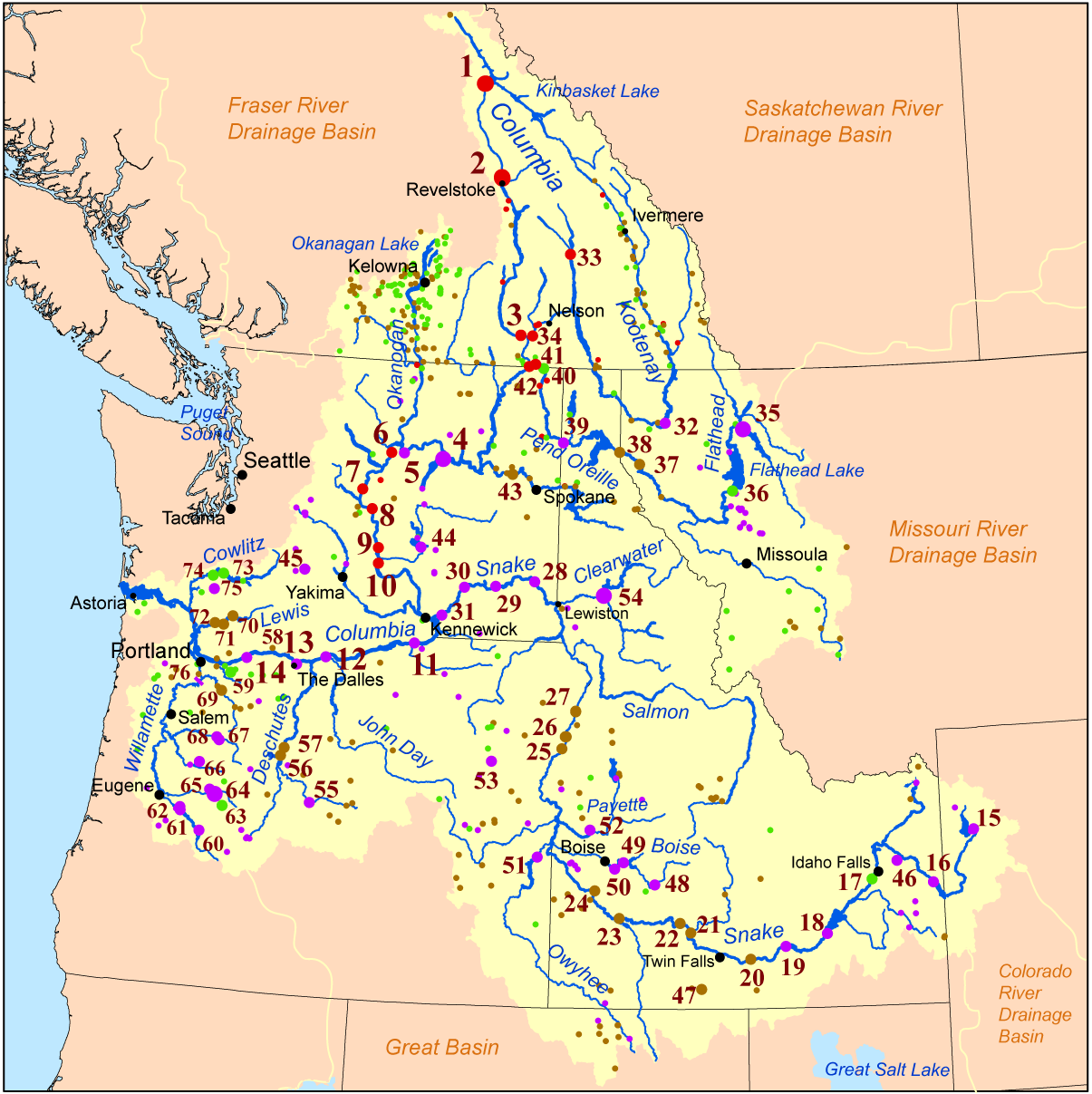Skip to comments.
Broken lock shuts down barge traffic on Columbia River system (WA & ID)
Spokane Spokesman Review ^
| September 9, 2019
| Thomas Clouse
Posted on 09/11/2019 7:35:01 AM PDT by ProtectOurFreedom
One of two ways that Pacific Northwest farmers get their wheat to export in Portland has been shut down after the U.S. Army Corps of Engineers stopped barge traffic on the Columbia River around the Bonneville Dam after a crack was found on a critical part of one of its massive locks.
With the navigation lock inoperable, barges can’t push upstream from Bonneville Dam, which is about 40 miles upstream from Portland. The broken lock is also preventing barges hauling wheat, logs and other freight from Idaho, Oregon and Washington from reaching port.
The crack was discovered late last week, and the lock was drained this weekend. Corps officials could not immediately say how long the repairs will take, spokesman Chris Gaylord said.
Barges haul about 8 million tons of cargo on the Columbia and Snake rivers each year, and 53% of U.S. wheat exports were transported on the Columbia River in 2017, the latest year available, said Kristin Meira, executive director of the Pacific Northwest Waterways Association.
About $2 billion in commercial cargo travels the entire system annually, according to the Corps of Engineers.
...60% to 65% of Washington wheat is barged to Portland. Some 90% of all wheat grown in Washington is exported to foreign markets.
...the last time the locks closed for a significant amount of time, the rail shipping rates were raised by about 40%.
While farmers in the Inland Northwest are finishing the wheat harvest, this is not typically a heavy transport time of year.
(Excerpt) Read more at spokesman.com ...
TOPICS: Business/Economy; Government; News/Current Events; US: Washington
KEYWORDS: bonneville; dam; grain; wheat
The temporary loss of the Columbia River for shipment of wheat and forest products is a huge problem, especially during the wheat harvest.
To: ProtectOurFreedom
Are there no trains that can pick up for now?
To: ProtectOurFreedom
The temporary loss of the Columbia River for shipment of wheat and forest products is a huge problem, especially during the wheat harvest.I can see this being the problem as you describe it, is there no alternative? No bridges cross the Columbia? Planes, Trains and Automobiles (big trucks) springs to mind. If you need to get product to market, choose one that is most viable for your needs. There should always be backup plans. Things like this fail. When they fail, it could take a considerable amount of time to repair. These are known quantities.
3
posted on
09/11/2019 8:00:44 AM PDT
by
BlackbirdSST
(Is it time Claire?)
To: BlackbirdSST
It will take a while to get replacement steel from China.
4
posted on
09/11/2019 8:07:13 AM PDT
by
Oldexpat
(Jobs Not Mobs)
To: Robert DeLong
Lots of trains already traveling river sides...especially coal and oil on Washington side...since Oregon won’t allow them.
5
posted on
09/11/2019 8:13:33 AM PDT
by
goodnesswins
(White Privilege EQUALS Self Control & working 50-80 hrs/wk for 40 years!)
To: ProtectOurFreedom
They need to assess whether repairs can be safely delayed until after the harvest.
6
posted on
09/11/2019 8:14:34 AM PDT
by
House Atreides
(Boycott the NFL 100% — PERMANENTLY!)
To: Robert DeLong
There simply aren't enough trains or trucks to pick it up. The volume of freight barge traffic is immense. River barges can fill up at more than two dozen grain elevators along the river network! The navigable river extends inland all the way to Lewiston, Idaho.
The river is 1,243 miles long and its largest tributary is the Snake River. Its drainage basin is roughly the size of France and extends into seven US states and a Canadian province. The fourth-largest river in the United States by volume, the Columbia has the greatest flow of any North American river entering the Pacific.
Ocean freighters can travel upriver as far as Portland, OR and Vancouver, WA and barges can reach as far inland as Lewiston, Idaho.
The 1980 eruption of Mount St. Helens caused mudslides in the area, which reduced the Columbia's depth by 25 feet for a 4-mile stretch, disrupting Portland's economy.
Major dams on the Columbia River...

To: goodnesswins
The frequent coal and oil trains through ID and WA are just immense. There’s a RR crossing not far from us in North Idaho and, if you see a train approaching the crossing, you turn onto an alternative route.
To: House Atreides
They need to assess whether repairs can be safely delayed until after the harvest.That was my first thought, too. I'm sure they assessed that right away. But apparently the concrete failure is big and serious enough to shut down traffic now and not wait.
To: ProtectOurFreedom
Broken lock? Try Schlage. That is what I use on my doors.
To: ProtectOurFreedom
Had Lewis and Clark only waited another 100+ years they could have leisurely floated from Idaho to the Pacific.
To: Rebelbase
Not even 100 years! The Inland Empire development occurred very quickly. 1866 also was the year the first load of wheat from the Palouse country of southeastern Washington was transported by boat down the Snake and Columbia rivers to Portland. Dredging in the estuary began in 1873.
That was only 60 years after Lewis & Clark's expedition!
See Navigation by the Northwest Power and Conservation Council.
Disclaimer:
Opinions posted on Free Republic are those of the individual
posters and do not necessarily represent the opinion of Free Republic or its
management. All materials posted herein are protected by copyright law and the
exemption for fair use of copyrighted works.
FreeRepublic.com is powered by software copyright 2000-2008 John Robinson
